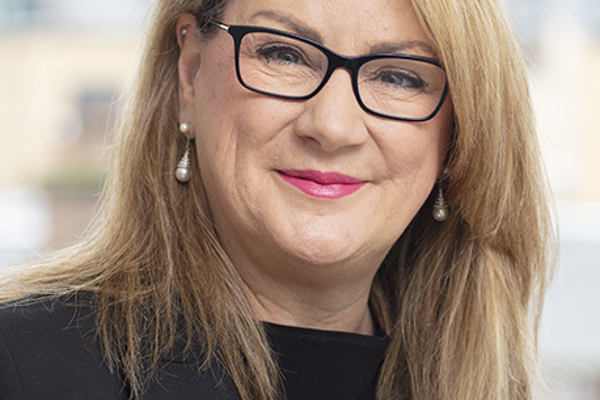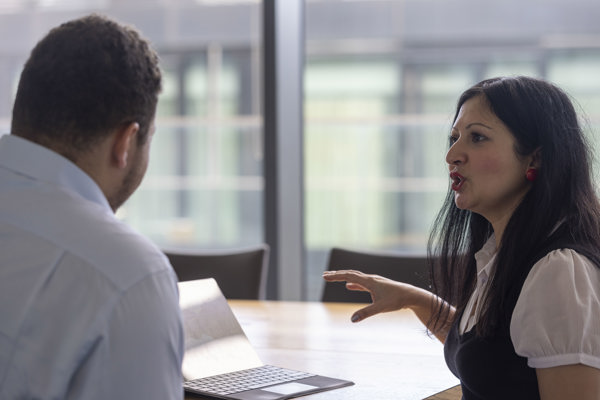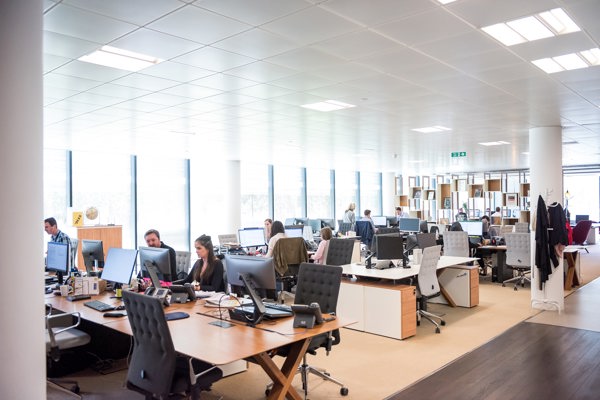Let's start with the question "What is Ramadan?"
I remember when I arrived in Scotland in the early 1980s as a fresh-faced young boy from Pakistan, this question was repeatedly asked by non-muslims around me. This prefaced further questions about what Ramadan involves, why we fast, why do the Ramadan dates change each year, why torture yourself by fasting etc? Often it then led to further questions about being able to drink water, chew gum, and utter disbelief as to why someone would volunteer to give up both food and drink for a whole month. The level of understanding and awareness about Ramadan was limited, the attitudes somewhat dismissive and as a young boy it felt quite daunting to have to explain myself and my faith to those around me who simply could not understand.
Thankfully the level of understanding and awareness has changed significantly. The UK is now much more multicultural and cosmopolitan and there's no doubt that social media has played a part. All of this has helped to bring huge awareness in respect of all religions and the associated religious events. Non-Muslims are now much more aware of Ramadan and it is pleasing to know that vast majority show great respect and sensitivity.
As a Muslim who participates in Ramadan, I thought I would write a brief piece about what it means to me. It is heartening to see Ramadan being so widely celebrated and shared - and encouraging to see a genuine interest in people wanting to participate and learn about this regardless of what faith they may or may not associate themselves with.
So back to the question of what is Ramadan?
This year the holy month of Ramadan for Muslims started on 23 March 2023. This is a special month. Muslims believe it was during this month that Allah (God) revealed the first verses of the Quran to Mohammed, on a night known as "The Night of Power". Fasting during Ramadan is one of the five Pillars of Islam. It was ordered in the Quran (the Muslim holy book) and is expected that all able Muslims (those who are mature and in good health) should fast from sunrise to sunset during the month of Ramadan. The exact dates of Ramadan change every year. This is because Islam uses a calendar based on the cycles of the Moon.
So why fast and what is that all about?
Irrespective of our own faith or no faith, we can all share in that reflection on hardship, hunger and suffering wherever it lies. We might pause and ask what difference we can personally make in our local communities as well as across the world. Fasting gives us a small window of what it might be like for those around us who struggle to afford food on a daily basis. It allows us to reflect of what we take for granted and makes us appreciate what we have and what we can do for others.
During this month Muslims will make a deeper effort to abstain from things considered to be impure for the mind and body. Those that take part in Ramadan abstain from food, drink and impure thoughts between the hours of sunrise and sunset, allowing them instead to focus on their faith and reflect. I believe majority of the Muslims will try to give up bad habits during Ramadan. It is a time for prayer and good deeds. They will try to spend time with family and friends and help people in need. They will do special prayers called Tarawee prayers at the mosque and focus on strengthening their ties with family and communities.
Fasting allows the individual to understand the pain and suffering of millions around the world, who live their lives in poverty and famine, leaving the participant feeling more grounded and grateful for their privileged lives and what we take for granted every day. This would usually encourage actions of generosity and charity. Charitable donation is a huge thing during the month of Ramadan. Charity, compassion and generosity should be something which is a part of our lives and not just a one-off action. Islam recognises and places a great deal of emphasis on being compassionate and caring and helping those in our communities who have less than us.
We have all heard much about people struggling and relying on food banks and I have been involved with my family in giving food to food banks and helping those less fortunate. Faith should not divide us but be a glue that brings us together, albeit from different directions. Unity through peace is at the heart of Islam and for me, it is a faith that must be lived through my actions. The Quran emphasises self-discipline through restraint of anger, acts of compassion and acts of charity and this is for me what Ramadan is all about. Eid which marks the end of the month, requires all Muslims to donate to feed the poor and again all Muslims use this month to step up and increase those donations and assistance. I have recently attended Islamic Relief events with my family and my 14 year old daughter is a volunteer with the organisation - they can see the difference it makes. My youngest son (9 year old) has recently donated money from his own piggy bank savings - he personally wanted to contribute to the charity.
Ramadan also provides another opportunity to step back and reflect on what is really important in life and to seek forgiveness. It is a time of spending with family and getting one's priorities in order.
Why do dates in Ramadan fluctuate?
As mentioned above the dates of Ramadan change every year. For religious matters, Muslims follow a lunar calendar - that is one based on the phases of the moon - whose 12 months add up to approximately 354 days. That's 11 days shorter than 365 days of the standard calendar. As a result of the Islamic calendar being based on lunar (moon) cycles, this means the exact date of Ramadan and its subsequent celebration Eid ul-Fitr is subject to change.
So that means that the first day of the month of Ramadan, which is the ninth month of the Islamic lunar calendar, moves backwards by about 11 days each year.
This has a large impact on how people experience Ramadan from year to year. When Ramadan falls in the winter, it's much easier to fast: the days are shorter, which means you don't have to fast as long, and it's colder out, so not being able to drink water all day is not too difficult. When Ramadan falls in the summer, fasting can be brutal. In many Muslim countries in the Middle East and Africa, summer temperatures can reach uncomfortably high. And in some Northern European countries such as Iceland, Norway and Sweden, fasting can last an average of 20 hours in the summer! Now that can be hard but then I think of the fact that at least I know that I will be enjoying a feast in a few hours while there are those around the world who have no idea from when and where they will ever get anything to feed themselves or their starving children. It certainly makes one humble.
A typical day during Ramadan
Usually, I would wake up well before dawn to eat the first meal of the day. This means eating lots of high protein foods and drinking as much water as possible right up until dawn (this will be approximately 4.00am at the start of the Ramadan), after which you cannot eat (including chewing any gum) or drink. At the moment it's still pretty early and therefore I would try to go back to sleep for a bit before waking up again to get ready for the day. It's not easy going back to bed when you have overeaten!
Muslims are not supposed to avoid work just because we are fasting. Therefore, I would go about my working day as normal. I tend to have some good days when I don't feel the fast, but I also have off days when I tend to struggle. It's mainly the dehydration that gets me rather than the hunger.
The struggle usually kicks-in couple of hours before Iftar (breaking of the fast), when the clock appears to go mega slow especially the last hour (maybe that is because I sit there and clock watch). This the time when preparations are being made in the kitchen and the whole family including the children get together to organise opening the fast and enjoying our family meal together.
This year the iftar time is approximately between 8pm to 9pm. Each day approximately two minutes are added before you can break your fast. When the evening call to prayer is finally made, we break the day's fast. We always have fresh dates to open the fast with. Again, this is a tradition going back to the days of the Prophet Mohammed when he would open his fast with a date. Most Muslims around this time will gift each other dates and open their fast with a date.
Many people also go to the mosque for the evening prayer and there is usually good atmosphere. Many of the mosques provide the iftar meals in the mosques and this is mainly funded from the donations made by the people.
I tend to give up playing any sports during the month of Ramadan to minimise the dehydration and therefore the activities for some during the month of Ramadan could be fairly low key.
Many people hold the view that people must lose weight during the month of Ramadan. Unfortunately, that is not true for me. In fact, Ramadan is actually notorious for often causing weight gain. That's because eating large meals super early in the morning and late at night with a long period of low activity during the day bordering on lethargy in between can wreak havoc on your metabolism. That said, it certainly focuses the mind and makes me appreciate the importance of having healthy foods and not just heavy meals – although when you’ve been dreaming of mouth-watering curry, pizza or fish and chips etc. all day then a fruit salad might not quite have the same pull!
Eid ul Fitr Celebrations at the end of Ramadan
Ramadan lasts 29-30 days and the end of Ramadan depends on when the next Moon is seen. The end of Ramadan is marked by a big celebration called "Eid ul-Fitr" or the festival of breaking of the fast. It's kind of like the Muslim version of Christmas, in the sense that it's a religious holiday where one comes together for big meals with family and friends, exchange presents and gifts for the children and Muslims go to the mosque for the Eid prayer and generally having a good time. Once Eid is announced the plans for the celebrations commence in full swing.
Food shopping is done in advance and again similar to Christmas the lead up to the Eid day is full of excitement and anticipation with the days leading up to it being counted down by the children. Food is at the centre of the day with the menu being planned with precision and very much influenced by my favourite dishes!
Eid can be summarised in three words in our house – food, family and friends!
How I celebrate Eid ul-Fitr
We would not usually find out when Eid is until the evening before. I usually wait impatiently for our local mosque to make the announcements, who in return wait for the Glasgow Central Mosque to confirm.
Once the moon is sighted and my local mosque confirms the end of Ramadan, we would wish family and friends "Chaand Raat Mubarak" (equivalent to Christmas eve) - quite often women and girls decorate their hands with mehndi (henna).
Usually, we have the clothes ironed and laid out the night before as the Eid prayer in the mosque the next day is very early. I tend to wear "salwar kameez" (this is the traditional clothing of Pakistan).
On the day of Eid, the whole family will go to the mosque for the Eid prayer. This usually gives us the chance to meet and greet family and friends.
Once the Eid prayer is finished, we would wish everyone "Eid Mubarak" (means blessed feast/festival).
After the visit to the mosque, the feast will begin and will last for the whole day. It is usually a busy day as we will have constant visitors coming round and we will also go and visit as well.
Gifts are exchanged.
It is usually a joyful and fun day.


